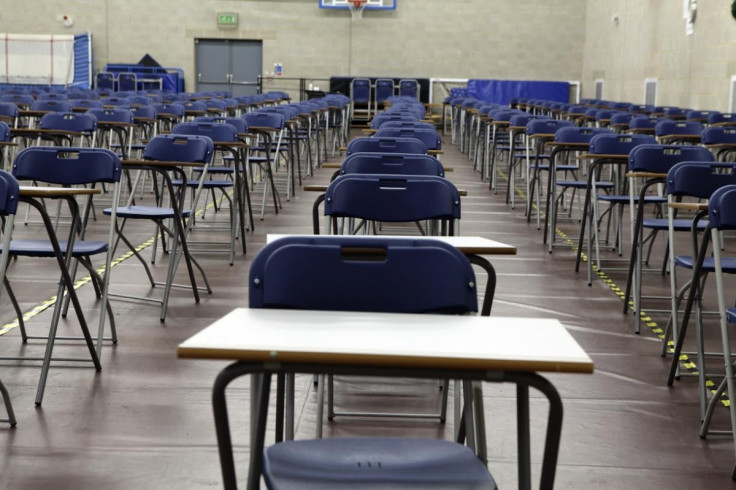Moving exams to Ramadan fasting doesn't just help Muslims, it means better results as a whole

"Those damn Muslims are wrecking our country again!" So what is it we've done this time?
We haven't been accused of terrorism (on this occasion), but we are behind the reason why hundreds of thousands of pupils have to sit their exams earlier then usual.
Last week it was announced that GCSEs and A-Levels may be taken before the usual exam dates so they don't clash with the Islamic month of fasting, and exams may also be held earlier in the day when Muslim students are least hungry and are able to concentrate.
As expected, some have written about the changes; that we shouldn't accommodate Muslim pupils as "we don't live in a Sharia" law-abiding country and because "Muslims are minorities". Others support the changes as it will ensure children are equally able to perform well in their exams.
Every year Muslims fast in the month of Ramadan, which means no water or food from dawn to dusk. With the lunar Islamic calendar, the holy month of Ramadan shifts each year in relation to the Gregorian calendar. This year Ramadan will be starting in early June; a stressful month for all students. In 2015 the exam period was even more stressful for Muslim pupils as they were fasting while undertaking exams that would shape their future.
JCQ Statement on Exam Timetables
There has been a clear misunderstanding in some parts of the media as to how the GCSE and A level timetable is set and the impact religious events, such as Ramadan, Easter and Passover, have on it. It is important to note that the timetable for 2016 was drafted over a year ago, is published, and won't be changing.
Each year the timetable is reviewed to ensure it meets the current needs of students, schools and colleges. This review includes a consultation and considers comments from a wide range of stakeholders including schools, colleges and religious groups. However, each year there are only minimal changes.
In such a large, complex system where there is a large number of candidates taking examinations and a diverse range of subjects available, it is not always possible to meet each and every request. Exam boards will always aim to be as fair as possible to all. If a small change can be made for any one group that does not impact negatively on most students, it will, quite rightly, be considered – but these are made before the timetable is published.
According to the latest census, 2.71million Muslims live in England and Wales – making up 4.8% of the population. Head teachers have voiced concerns about the clash of Ramadan and exams, believing that it may have a negative effect on exam performance.
This year the Joint Council for Qualifications (JCQ) decided to bring the core exams forward assuring they start before Ramadan. Last year there were plans to accommodate Muslim students but the effect was minimal because Ramadan began on June 18.
The JCQ has reassured the public that the timetable hasn't been changed on a large scale, yet the minor changes will allow the pupils who wish to practice fasting during the holy month to still do well in their exams.
Even though the JCQ are practicing equal rights and keeping in mind all children's futures, hundreds of thousands of pupils will take some exams up to a week earlier in comparison to previous years, which according to some means they have less time to revise. Surely if students have been studying all year long in preparation for their exams, then taking an exam a week earlier would have a negligible effect? Is a week really going to change a D to an A*? Many subjects will be unaffected anyway because their exams were already scheduled before the start of Ramadan.
There will also be an increase in the number of important exams being held in the morning, instead of late in the afternoon, so pupils who are fasting are more likely to have energy to answer questions. Such measures are likely to be adopted by boards, for at least the next five years, as the month of Ramadan will continue to clash with exam season.
Colin Hart of Christian Concern told the Telegraph that it was wrong that the education authorities are considering "imposing this festival on everybody else".
"What about students who have medical conditions? How can you start changing the rules for everybody just for those particular pupils who are Muslims, which is a minority. We don't live in Saudi Arabia where they need to fit the exams around sharia principles," he told the paper.
Why is it that when the government or officials decide to support the Muslim community, the press write against us, as if we are enforcing Saudi Arabian ruling? The JCQ wouldn't have considered the need to change the exam timetable if it wasn't affecting Muslim pupils, which then affects the UK education performance as a whole.
"If a small change can be made for any one group that does not impact negatively on most students, it will, quite rightly, be considered," said the JCQ statement. It isn't "wrong" as some people have expressed, but a fair and just policy which has been welcomed and appreciated by Muslims.
The West is known for its equality, and this change proves that the West doesn't marginalize the Muslim community. It is giving children the opportunity to practice and celebrate their festival whilst performing their best in their exams. Within the next five years the stressful exam period might be starting sooner and finishing earlier. A relief surely every pupil would be looking for?
Naka Alkhzraji is Arab media manager at London-based charity and research group Integrity.
© Copyright IBTimes 2025. All rights reserved.






















